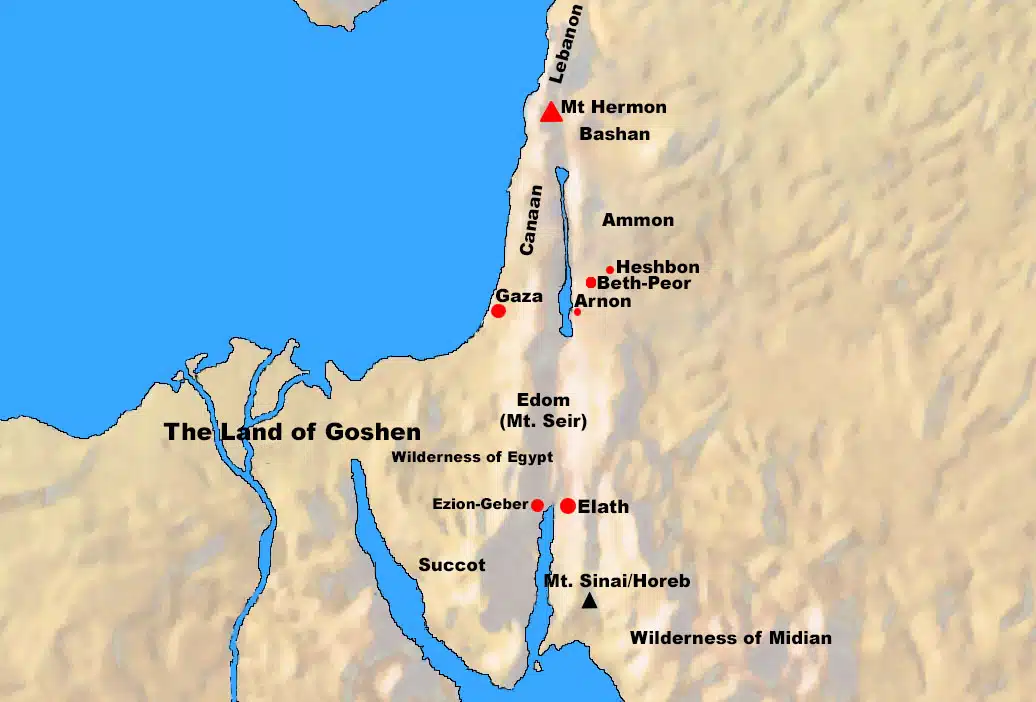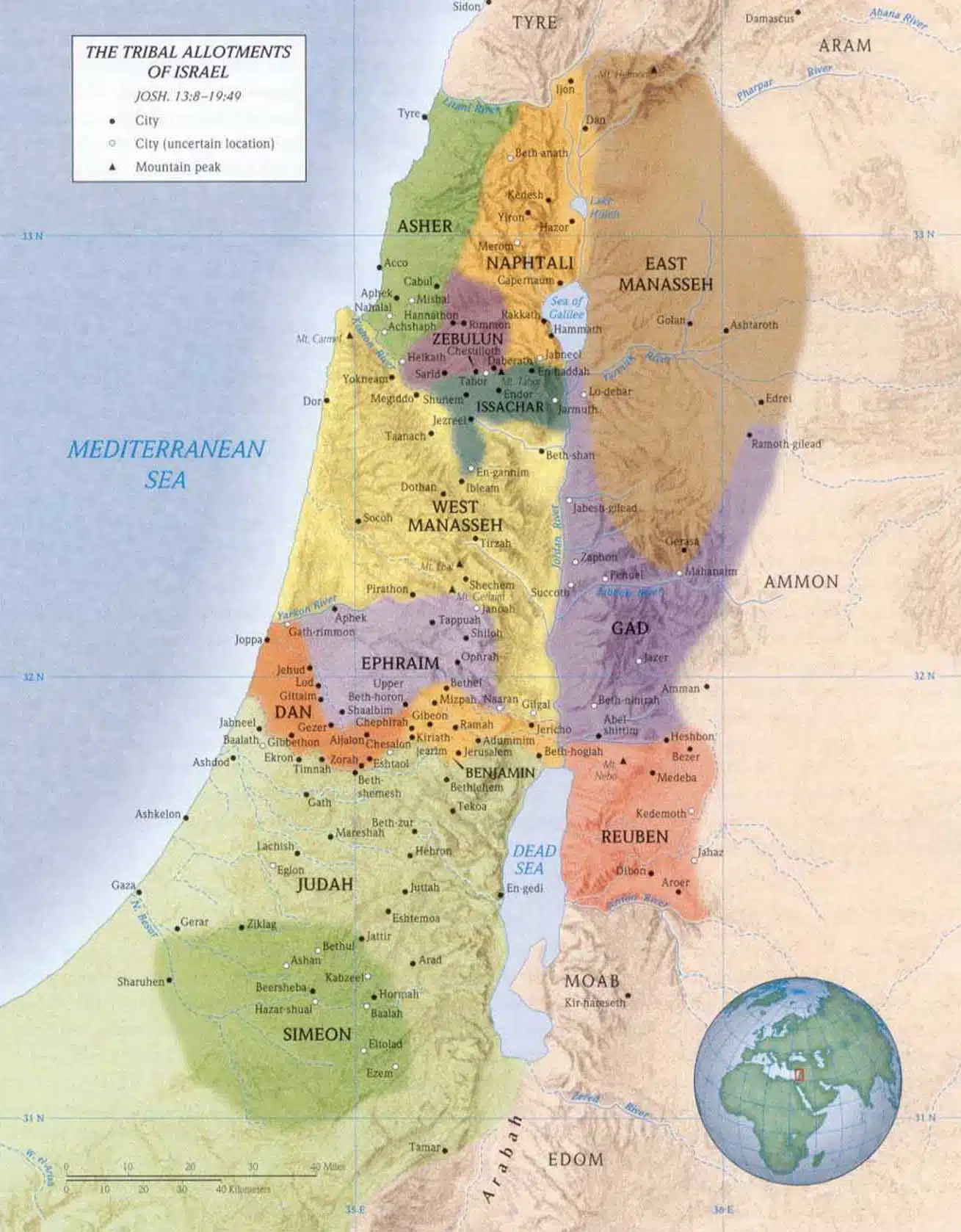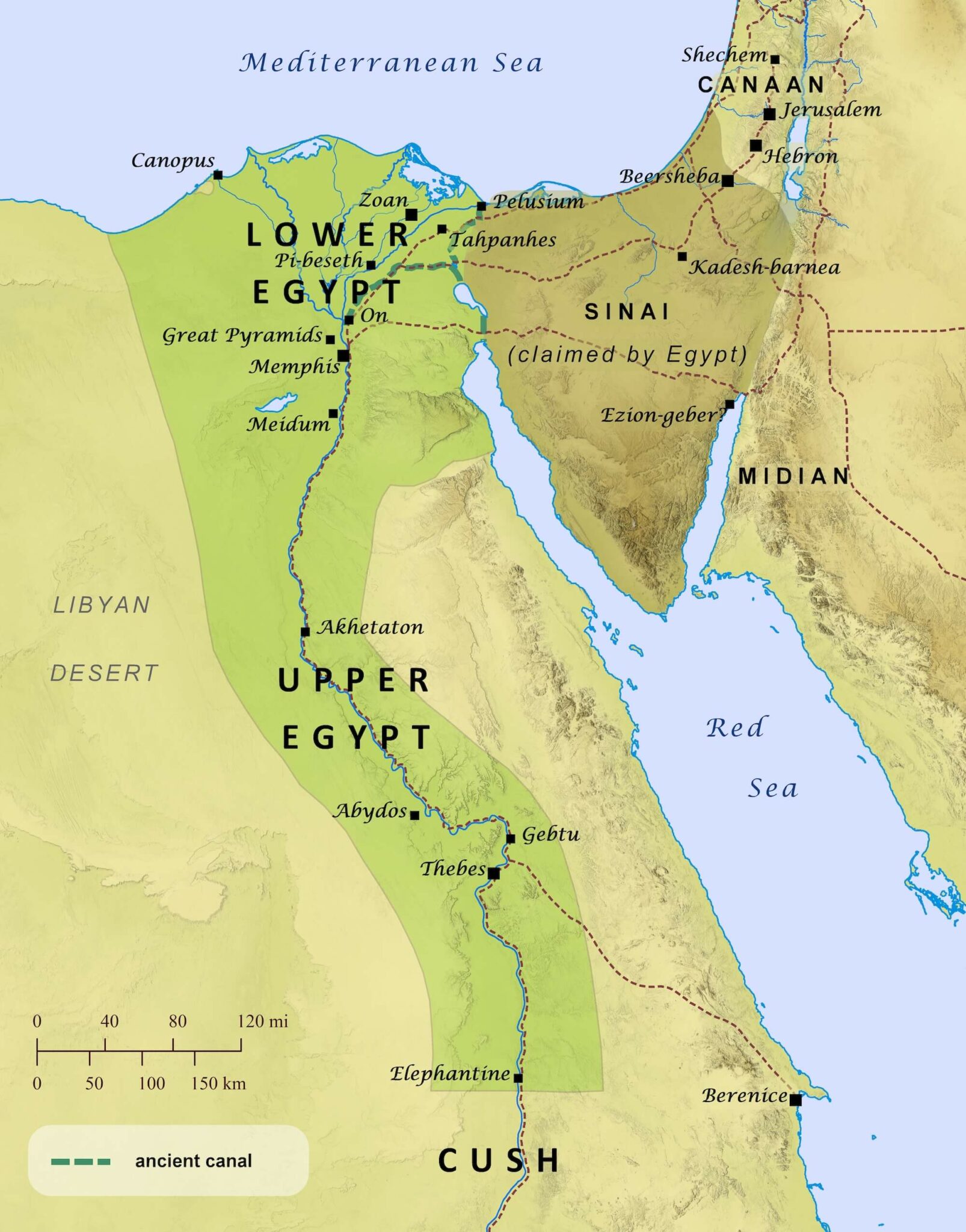This section focuses our attention on the Israelites who are to be delivered later in the book of Exodus. It connects them to the children of Jacob that had migrated to Egypt some 400 years earlier. During this time, they multiplied and became prosperous in Egypt, both of which are indications of God’s blessing
The word translated Now (normally translated “And”) shows that the book of Exodus is a continuation of the book of Genesis. Interestingly, it does not pick up where the book of Genesis ends in chapter 50. Instead it goes back to chapter 46, when Jacob was commanded by God to take his family and go to Egypt (Genesis 46:1-2). Thus, this verse goes back some 400 years in history to connect the family of Jacob in Genesis to the Israelites, who are the main players in the book of Exodus.
Verses 2-4 list the sons of Jacob. This list is quite a bit shorter than the one in Genesis 46 because it lists only Jacob’s sons and Genesis 46 includes the descendants of Jacob’s sons.
The sons are listed here in the order of when they were born. The first six listed Reuben, Simeon, Levi and Judah, Issachar, and Zebulun are sons of Leah. The birth of the first four sons is found in Genesis 26:31-35, then after a time of not bearing children, Leah gives birth to Issachar and Zebulun (Genesis 30:18-20). Benjamin is the son of Rachel (Genesis 35:18). The next two (Dan and Naphtali) are sons of Rachel’s maidservant Bilhah. The last two sons, Gad and Asher, are from Leah’s maidservant Zilpah (Genesis 30:6-13). Note that the sons of Jacob’s wives Leah and Rachel are listed first, then the sons of his maidservants (or concubines) are listed last.
Since there are only eleven names in the list, Moses adds a note of clarification that Joseph was already in Egypt. See Genesis 37 to see the story of how Joseph was sold into slavery by his brothers and how he ended up in Egypt.
The word persons here in verse 5 translates the Hebrew word normally translated “souls”. It simply refers to a person or an individual. These individuals are said to come from the loins of Jacob, which identifies them as the direct descendants of the patriarch who received the promise from God of being a great nation (Genesis 46:3).
The family of Jacob started out as seventy. Since this was already known (Genesis 46:27), its mention here is to provide a contrast with Israel’s humble beginnings with what follows in verse 7. Such a small number at the beginning of their time in Egypt is contrasted with how many left Egypt in the exodus (which scholars believe was probably 1.5 to 2 million).
There is a difference of opinion as to the number 70 used here. The Greek translation of Exodus uses the number 75, and this number is used in Stephen’s speech in Acts 7:14. The difference is not a major one because Moses could simply be rounding the number.
The purpose for mentioning Joseph’s death and the deaths of all of Joseph’s generation was to show that Israel prospered in spite of losing its foundation in the patriarchs and being few in number.
Verse 7 is the theme of the chapter and is the basis for what occurs in the next section. There are three verbs in this verse that describes God’s blessing on the sons of Israel – fruitful, increased greatly, and multiplied. The fact that the sons of Israel were fruitful shows that God was blessing them.
The three verbs also form a connection to the creation account in Genesis 1. All three verbs are used in the passage, showing that God is the one to causes the increase, then and now.
Around 360 years had passed since Jacob and his family went down to Egypt. Not much is known about those years, only that the number of Israelites grew tremendously during that time. It is tempting to see verse 1 as simply a continuation of the last verse of Genesis, but it seems better to think of this verse as looking back to Genesis and setting the foundation for what follows in Exodus.
Biblical Text
1 Now these are the names of the sons of Israel who came to Egypt with Jacob; they came each one with his household: 2 Reuben, Simeon, Levi and Judah; 3 Issachar, Zebulun and Benjamin; 4 Dan and Naphtali, Gad and Asher. 5 All the persons who came from the loins of Jacob were seventy in number, but Joseph was already in Egypt. 6 Joseph died, and all his brothers and all that generation. 7 But the sons of Israel were fruitful and increased greatly, and multiplied, and became exceedingly mighty, so that the land was filled with them.
Check out our other commentaries:
-
Deuteronomy 2:26-31 meaning
Moses continues his history lesson with a reminder of the LORD hardening the spirit and heart of King Sihon to deliver him into the hands...... -
Jude 1:5-7 meaning
Jude appeals to examples from the Old Testament as proof to what he is urging his readers to do. God saved the Israelites from slavery...... -
Daniel 8:15-19 meaning
The Vision of the Ram and the Goat: Daniel tries to understand the vision. He sees an angel in front of him, and a voice...... -
Matthew 21:33-41 meaning
Jesus tells the parable of a landowner who plants a vineyard on his land. He then hires vine-growers to work His vineyard while He is...... -
2 Timothy 4:9-18 meaning
Paul tends to some personal matters. He urges Timothy to try as hard as he can to see him before he is executed. Most of......





